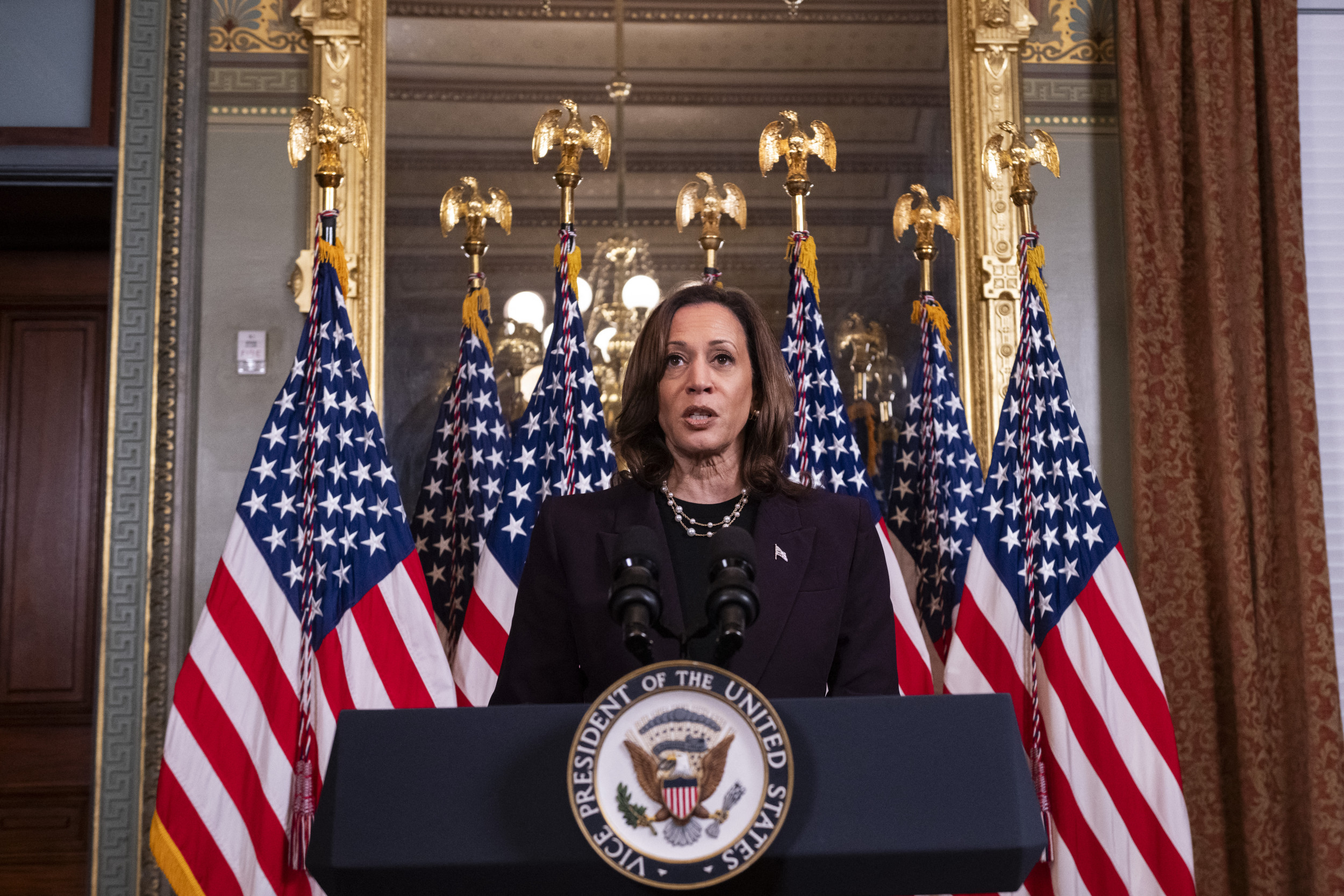Following her meeting with Israeli Prime Minister Benjamin Netanyahu, Vice President Kamala Harris’ recent statements suggest a change in the White House’s stance on Israel’s conflict in Gaza. As the presumptive Democratic nominee for president after Joe Biden’s withdrawal from the race, Harris expressed support for Israel’s right to self-defense. However, she also emphasized the Palestinian suffering in Gaza and called for a ceasefire agreement during her discussions with Netanyahu.
Harris highlighted the dire situation in Gaza, stating, “The devastation in Gaza over the past nine months is heart-wrenching.” She spoke about the tragic scenes of deceased children and displaced civilians, stressing the urgency to address these humanitarian crises and affirming her commitment to speaking out.
Observers noted a shift in Harris’ tone since her past comments pointing out the civilian casualties in Gaza last year and urging for an immediate ceasefire just a few months ago. The evolving nature of her stance is seen as a move towards a more balanced position as she leads the Democratic ticket against former President Donald Trump in the upcoming election.
Experts suggest that while Harris remains dedicated to Israel’s security, she may adopt a more critical approach towards the Palestinian issue if she assumes the presidency. This change in emphasis, with a greater focus on the suffering of innocent Palestinians, has been noted as a departure from previous White House rhetoric.
The ongoing conflict in Gaza has resulted in a significant toll on the Palestinian population, with thousands of casualties and a deteriorating humanitarian situation. The violence erupted following an attack by Hamas on Israel, leading to widespread devastation and a large number of hostages still in captivity.
Commentators highlighted that Harris’ recent statements, openly referencing the loss of innocent lives, represent a departure from the usual diplomatic language used by the White House regarding the conflict. Social media responses, including praise for her approach, indicate a shift in public sentiment towards a more compassionate and thoughtful dialogue on the issue.
Despite Harris’ alignment with the Biden administration’s policy towards Israel, her acknowledgment of the concerns and calls for peace from various quarters reflects a nuanced understanding of the complexities involved. She also denounced acts of violence and hate, emphasizing the need for peaceful protest while rejecting antisemitism and intolerance.
